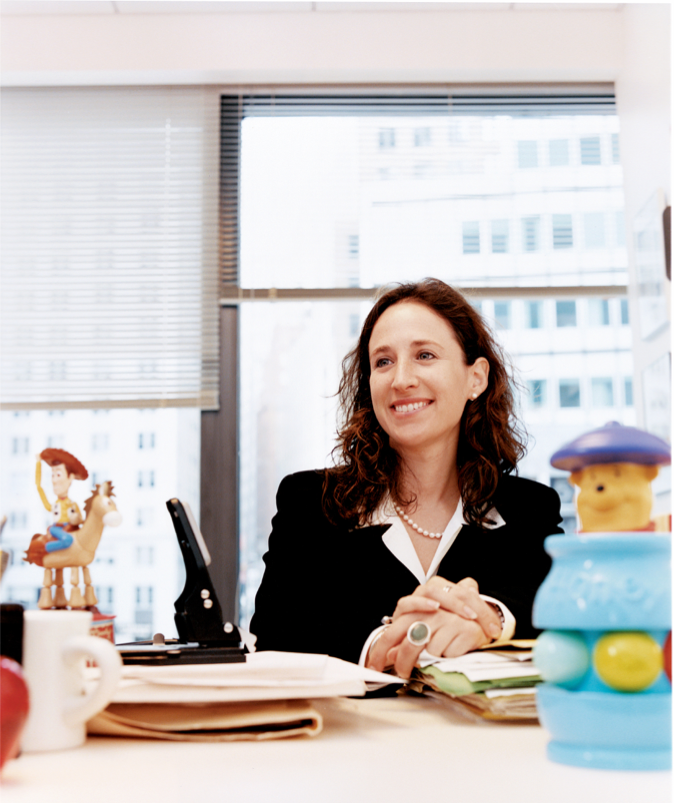Katherine Locker ’98 Advocates for Foster Children with Disabilities
Katherine Locker ’98 knows that children with disabilities who are in the foster care system are some of the most vulnerable people on the planet. They’ll thrive or languish, depending on the educational assistance they receive while they’re very young. To succeed, they need advocates who can identify their needs and navigate the labyrinthine legal, social services and educational systems, making those systems work for them.
Locker, who is now founder and supervising attorney of the Kathryn A. McDonald Education Advocacy Project in the Legal Aid Society’s Juvenile Rights Division in New York City, first learned the importance of advocacy watching her parents raise her sister, a child with significant developmental delays. “I learned from my parents that, when it comes to supporting children with disabilities, the squeaky wheel really does get the grease,” she said.
The problems children with disabilities face are compounded for those who end up in foster care. Locker cited a study that indicates that more than half of all foster children have substantial delays in cognitive, speech and behavioral development.
She saw such children when she worked with the Juvenile Rights Division during a law school internship, and knew she wanted to be an advocate for them. Through an HLS Skadden Fellowship, she developed the program she now heads, which obtains educational and developmental services for children who have disabilities and who are the subjects of child protective proceedings. So far it has represented more than 900 children. It also trains lawyers, Family Court judges, foster care workers, foster parents and others on how to advocate for children’s educational needs.
The work is painstaking, often frustrating, sometimes tedious. The EAP’s young clients often move from one foster home to another, one school district to another. It takes a practiced eye to identify the educational services these children need. And someone has to make sure they get that help.
“It’s incredibly challenging to advocate for children with disabilities,” Locker said. “Resources are limited and cases are complex.”
Complexity is often a result of the children’s unusually difficult lives. One young client, J.M., had been living on the streets of New York City with his mentally ill mother until he was placed in foster care. At 6 years old, the boy had never attended school. When Locker’s program got the case, the boy’s speech was unintelligible and he did not know the names for common objects.
“We needed to determine, first of all, whether J.M. was struggling because he’d never been in school, or primarily because he had developmental delays,” Locker said. To get the child evaluated involved obtaining permission from his biological mother, who still held parental rights but was staying in a homeless shelter, which made her hard to reach. Then there were negotiations with the school system. Finally he was evaluated and assessed, and it became clear, says Locker, that the child needed a small-classroom setting to address his intensive language and cognitive delays. Ultimately, he was placed in a classroom where he is adjusting well.
“It’s satisfying when you get the appropriate services for a child,” Locker said. “Sometimes, when you’re making phone call after phone call, this work can be unbelievably frustrating. But it has a real impact. Our ultimate hope is that we’re getting these children the services they need early on, to help them maximize their potential.”
